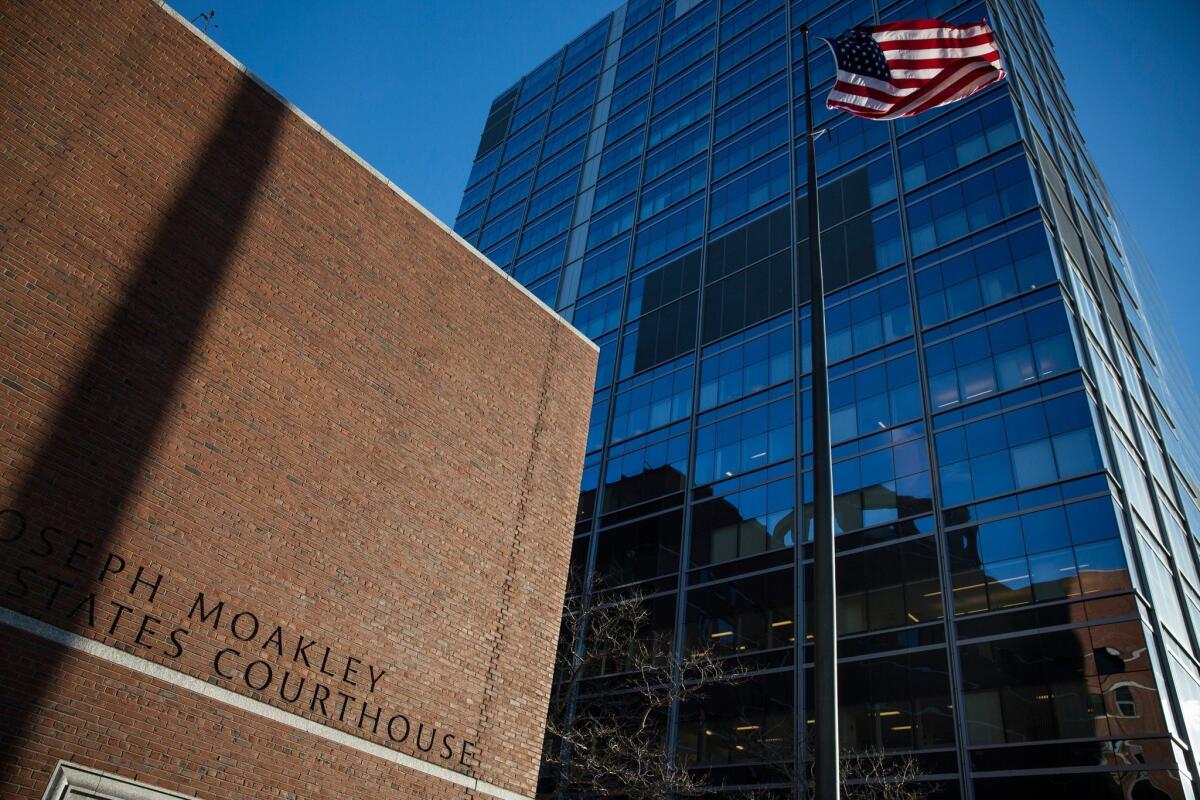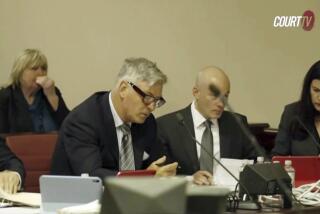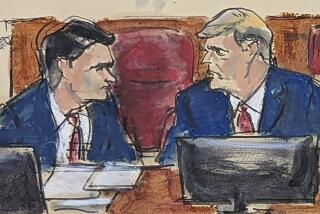Jury selection begins in trial of Boston Marathon bombing suspect

- Share via
Reporting from Boston — A federal judge began the search for a jury in the Boston Marathon bombing case, holding two preliminary sessions with jury candidates Monday and asking defendant Dzhokhar Tsarnaev to stand and present himself to those who may decide whether he lives or dies.
The 21-year-old Russian immigrant and former college student appeared thin and pale in a brown sweater and white slacks, his beard trimmed and thick brown hair tousled over his ears.
Potential jurors in the capital murder case strained for a good look, watching as Tsarnaev crossed his hands and at times appeared somewhat bored.
Unseen was the anger that others remember of him in the days after the 2013 bombings, or the dazed and gravely injured figure caught at night hiding in a boat in Watertown, a Boston suburb.
U.S. District Judge George A. O’Toole Jr. has repeatedly rejected requests from Tsarnaev’s legal team to move the trial out of the Boston area, deflecting the lawyers’ insistence that Tsarnaev cannot receive a fair trial in an emotionally scarred city still grappling with the worst U.S. terrorist attack since Sept. 11, 2001. Three people were killed and 260 others injured when two pressure-cooker bombs exploded near the finish line.
Tsarnaev has pleaded not guilty to 30 felony charges, including 17 that carry the death penalty, such as using a weapon of mass destruction.
In morning and afternoon sessions, held in the packed jury assembly hall at the federal courthouse along the Boston waterfront, O’Toole told the jury candidates that they must be able to set aside any preconceived notions of guilt or innocence and grant Tsarnaev a fair and impartial trial.
O’Toole said the jury — not he, the lawyers, the media or the community — will decide whether Tsarnaev is guilty, and if so, whether he should be sentenced to death or spend the rest of his life in prison without the possibility of parole.
“What you do need is a commitment to justice,” he told the potential jurors, 1,200 of whom will be summoned this week.
The prospective jurors appeared solemn and sincere as O’Toole spoke of citizenship and constitutional duty.
According to an order the judge filed Monday afternoon, the prosecutors and defense lawyers, as well as the judge himself, are to begin reviewing lengthy questionnaires the candidates fill out.
The judge admonished them to answer the questions “thoughtfully, honestly and completely.” He warned, “Your answers must be truthful and signed under penalty of perjury.”
The questionnaires are sealed, as are most of the filings in the case. They are thought to deal with each person’s background, what he or she already knows about the case, and whether he or she can fairly judge Tsarnaev.
O’Toole’s order said he planned to start individual questioning of the jury candidates “as soon as practicable,” but not before Jan. 15. Forty will be questioned each day.
The chosen 12 jurors and six alternates must show that they would be willing to sentence Tsarnaev to death if the government proves beyond a reasonable doubt that he and his older brother, Tamerlan Tsarnaev, were responsible for the twin bombings. Tamerlan Tsarnaev was killed in a police shootout days after the attack.
A death sentence must be unanimous; otherwise, if convicted, Tsarnaev would get life without parole. If he is acquitted, he would be set free.
O’Toole said he hoped to start testimony by Jan. 26. He told the jury groups that the trial could last three to four months.
Finding an impartial jury may not be easy. A Boston Globe poll in July showed that 62% of residents agreed with the Justice Department’s decision to seek the death penalty, while 29% disagreed.
Massachusetts has not executed anyone since 1947, and has not had a state death penalty statute since the early 1980s.
In the federal court system, just four people have been executed since 1963. They came from criminal cases in Iowa, Oklahoma and Texas, including convicted Oklahoma City bomber Timothy McVeigh. The 1963 case involved Victor Feguer, a convicted murderer. He was hung after his appeal for clemency was denied by President Kennedy.
richard.serrano@latimes.com
More to Read
Sign up for Essential California
The most important California stories and recommendations in your inbox every morning.
You may occasionally receive promotional content from the Los Angeles Times.














